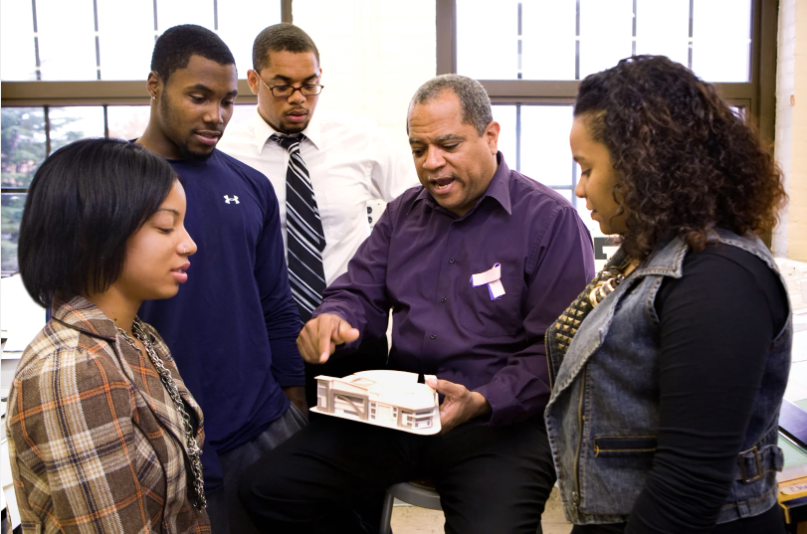During his address to the 1968 AIA National Convention, civil rights leader Whitney M. Young, Jr. challenged the architectural profession to pursue more progressive values.
“One need only take a casual look at this audience to see that we have a long way to go in this field.”
“You are not a profession that has distinguished itself by your social and civic contributions to the cause of civil rights . . . You are most distinguished by your thunderous silence.”
In 1972, the AIA established a national award in his memory. That award distinguishes an architect or organization that embodies social responsibility and actively addresses a relevant issue, such as affordable housing, inclusiveness, or universal access.
The 2023 Whitney M. Young, Jr. Award was bestowed upon Robert L. Easter, FAIA – a member and Past-President of AIAVA – in recognition of his enduring commitment to advancing those individuals who have traditionally been underrepresented in the profession of architecture.
On the 17th of February, during Black History Month, Virginia State Senator Ghazala Hashmi sponsored Senate Joint Resolution 373 in which the General Assembly commends Robert L. Easter, FAIA for having received that award. Read the resolution here: SENATE JOINT RESOLUTION NO. 373
I am convinced that Whitney M. Young, Jr.’s challenge still echoes. I am convinced that Robert L. Easter’s advocacy and activism was spawned, to some degree, in response to the echoes of Young’s challenge. I am convinced that there is an echo to be heard as a result of Easter’s actions. I am convinced that there are echoes emanating in response to those actions. I am convinced that we should not ignore those echoes. I am convinced that we can no longer feign deafness to those echoes.
Let us resolve to take the time – and the action – to encounter the great symphony of those echoes. To do what we can not only to amplify those who need to be afforded a voice, those whose voice demands attention, and those whose voice cries out for justice, but also to amplify those whose voice suggests a way to acknowledge injustice, to rectify wrongs, to prevent injustice, and to progress towards a more just and inclusive profession.
Let us be bold enough to listen to the echoes. And let us add our voices to that choir.
Paul Battaglia, AIA
Executive Vice President
AIA Virginia

